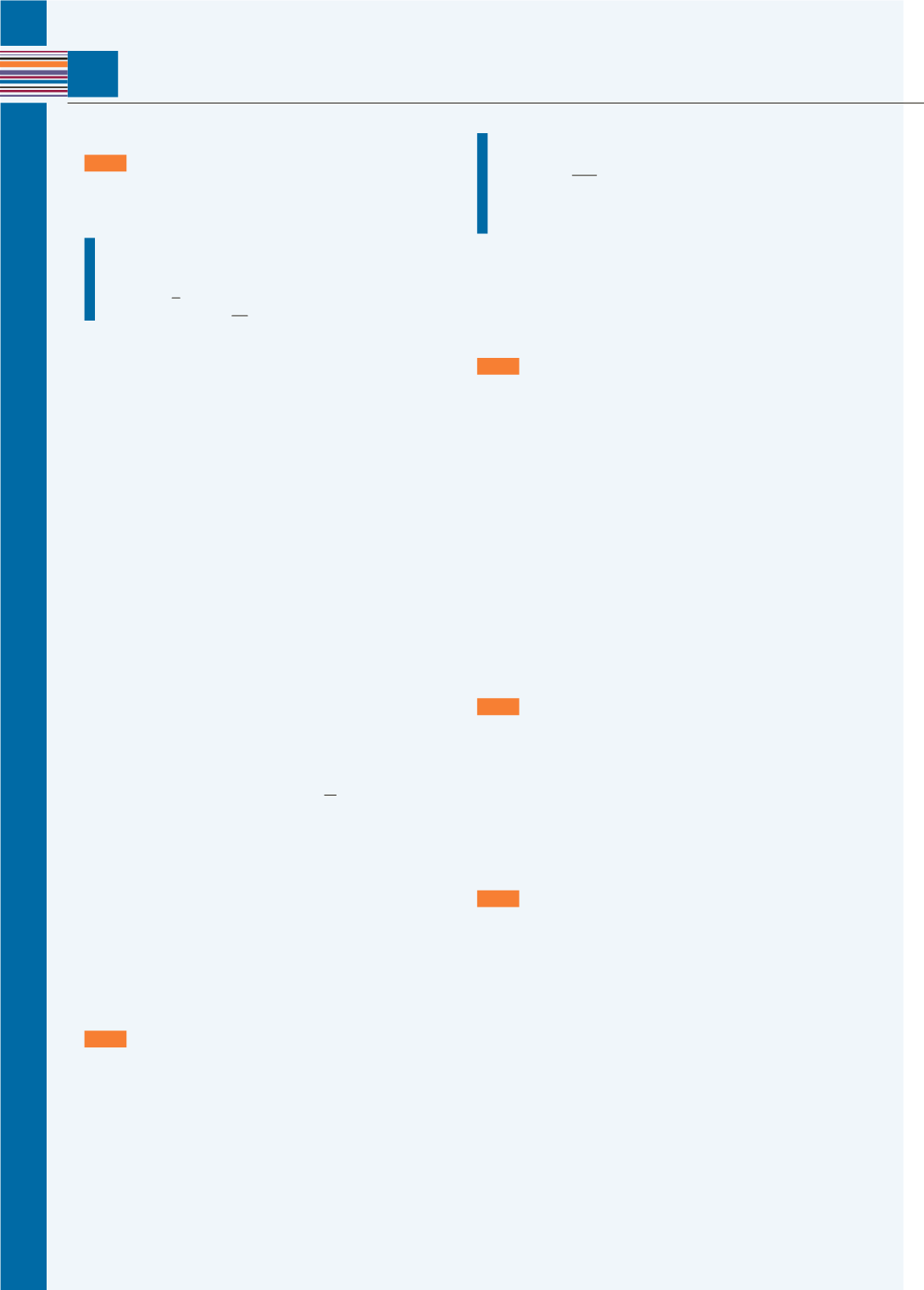
LANGUAGE REFERENCE
136
6
GRAMMAR
G1
DEFINING RELATIVE CLAUSES
Use defining relative clauses to identify or define
things, ideas, places, time and possessions.
Children like subjects
which interest them
.
!
Don’t repeat the noun from the main clause or
introduce a personal pronoun to replace it.
Have you ever been to that museum which we just
drove past it?
û
That’s the man who he helped me yesterday.
û
A defining relative clause begins with a relative
pronoun or adverb.
RELATIVE PRONOUNS
Use
that
to refer to things, people or ideas.
That’s the book
that
I was looking for.
Are you the person
that
I spoke to yesterday?
You’re ignoring the point
that
I was making.
Use
which
to refer to things or ideas.
Yesterday we went to the restaurant
which
you
recommended to us.
Use
who
to refer to people.
That’s the man
who
I bought my car from.
Use
whose
to refer to possession.
He’s the teacher
whose
students get the best grades.
RELATIVE ADVERBS
Use
where
to refer to places.
He studies at a university
where
some of our
politicians got their degrees.
Use
when
to refer to time.
I still remember the day
when
we first met.
If we use a relative adverb we don’t normally use a
preposition in the relative clause.
That’s the house where I was born in.
û
That’s the hotel where we stayed last year.
ü
SUBJECT/OBJECT RELATIVE CLAUSES
The relative pronoun can be the subject or the object
of the relative clause.
What’s the name of the film that we saw yesterday?
(We saw
the film
.)
That’s the shop which has the dress I want to buy.
(
The shop
has the dress.)
If the relative pronoun is the object of the relative
clause, then it can be omitted.
What’s the name of the film (that) we saw yesterday?
G2
NON-DEFINING RELATIVE CLAUSES
Non-defining relative clauses give information about
something in the main clause but do not help to
identify or define it. They must have a comma before
and after the clause. Non-defining relative clauses
are not common in spoken English.
The President,
who is currently on a trip to the USA
,
said he disagreed with the decision.
(We know who the President is without the
information in the relative clause.)
!
Do not use
that
in non-defining relative clauses.
Use
who
or
which
instead.
The course, that was also started by Professor Smith,
is ending next year.
û
The course, which was also started by Professor
Smith, is ending next year.
ü
We can also use a non-defining relative clause at the
end of a sentence.
Last year we visited Rome, which we thought was a
really beautiful city.
KEY LANGUAGE
KL
DISCUSSING POSSIBILITIES AND OPTIONS
THINKING ABOUT POSSIBILITIES
There are several ways to deal with this.
Let’s look at our options.
The good thing is … the bad thing is …
MAKING SUGGESTIONS
How about (+ -
ing
) Supposing we …
CHANGING YOUR APPROACH
Let’s see, what other things can we do?
MAKING A DECISION
That’s the best solution.
DECIDING WHAT TO DO NEXT
The best way is to … So, the next thing to do is …
Why don’t you send me notes on all the problems … ?
VOCABULARY
V1
EDUCATION AND STUDYING
approach, bullying, compulsory education,
continuous assessment, criticise, curriculum, drop out,
elementary school, easy-going teacher, environment,
exam, fail, formal learning, friendly teachers, graduate,
hand in, higher education, informal learning,
method, mixed-sex schools, pace, pass, primary
school, private education, punctual, secondary
school, single-sex schools, state (public) education,
statistics, strict, truancy, unique, well-prepared
V2
EDUCATION COLLOCATIONS
do homework/coursework/your best/an exam;
drop out of school; fail an exam/a course;
get a good grade/a good result/a place at university/
a degree; go to school/college/a seminar;
graduate from university/from high school (US,
Australian English); hand in an essay/an assignment;
leave primary school; make progress/mistakes;
pass an exam/a course; revise for an exam/a subject/
a test; sit an exam; study a subject/a language;
take or retake an exam/a course


